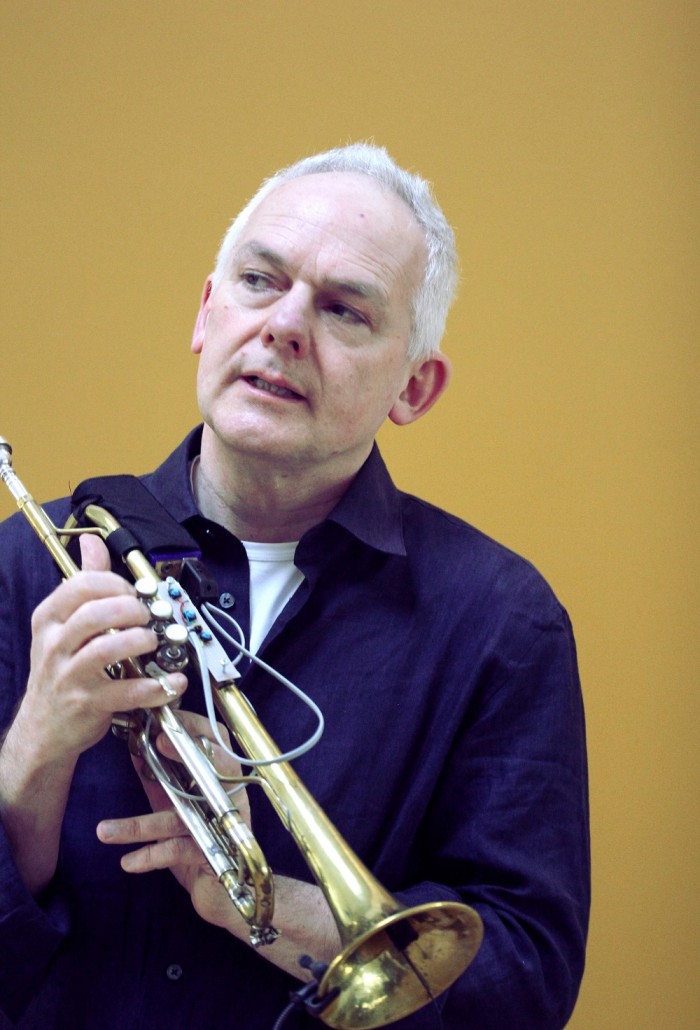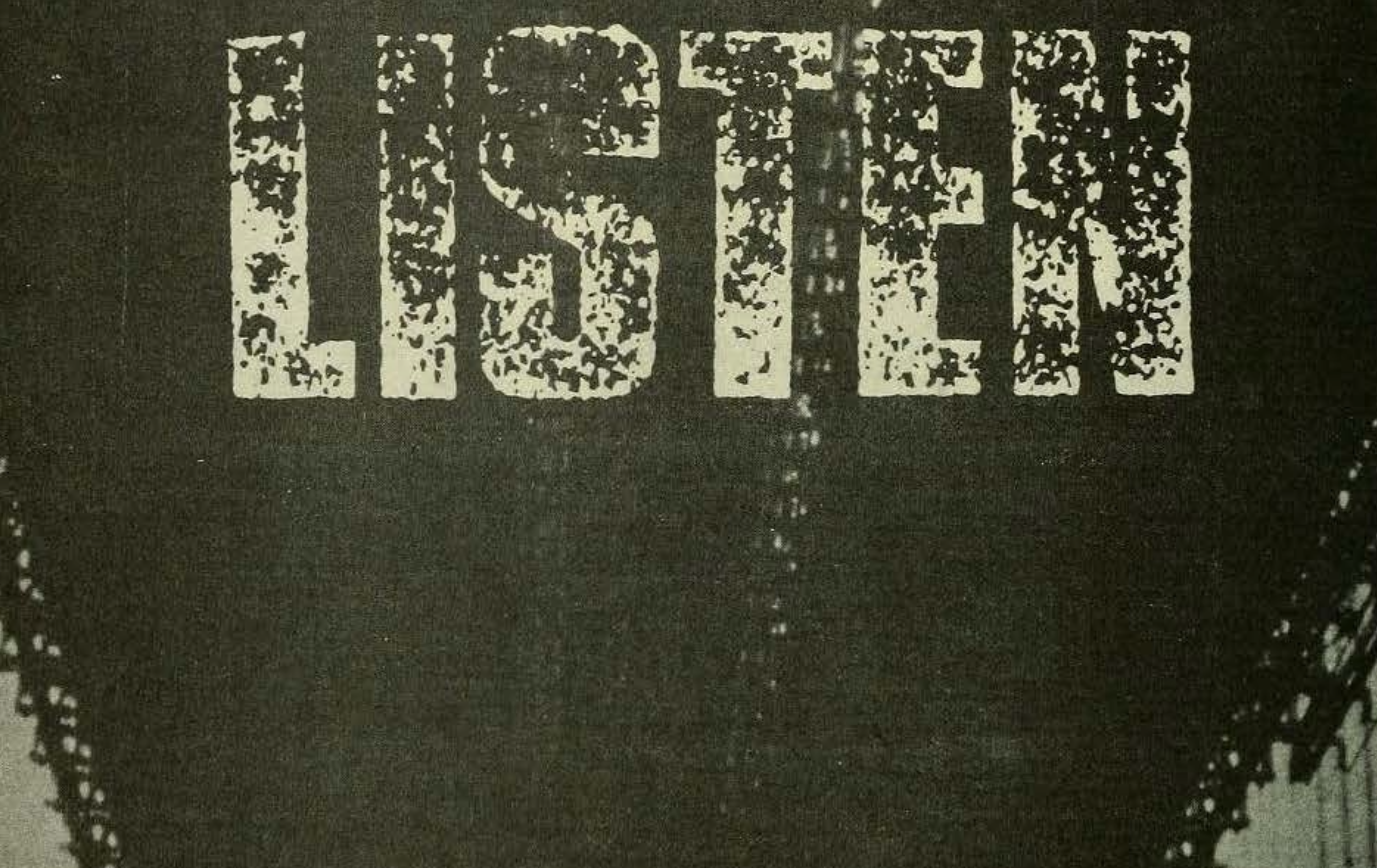
Datum en locatie
van 9 februari 2026 tot 20 mei 2026
Ghent & The Hague
Sound Arguments 2026
Eventvan 9 februari 2026 tot 20 mei 2026Sound Arguments is an innovative laboratory-atelier for creative artists and researchers dealing with sound. Presented by the Orpheus Instituut, Ghent (BE), and the Academy of Creative and Performing Arts, University of Leiden (NL), Sound Arguments transcends the boundaries of art school or conservatory, art space or university to propose a new kind of creating-researching-learning community. It reaches into the broad and complex space of current art-sound practices. At Sound Arguments, participants will share, invent, listen, learn and discuss.
InschrijvenOur creative, imaginative relationship with sound has entered a fantastically rich period, facilitated and necessitated by cultural, social and technological evolution. Sound acts as a new parameter in a world evolved from the practices and theory of the visual arts, and as a highly sophisticated art form in music composition and improvisation. It acts as a dimension of the plastic, installation and interactive arts. It provides a perspective on place and time. It is a vital component of environmental art and a conveyor of information, e.g. through sonification. It emerges as algorithmic surface, as the trace of virtuoso improvised performance or of informal social behaviour. And it provides an interface with technology.
Each of these perspectives has its own discourse, practices, techniques, cultural infrastructure and institutions. Sound Arguments is a locus for this rich tapestry, a space that aims to bring together people interested and working with sound with diverse, and complementary, backgrounds. Through sustained cross-fertilisation, they will participate in the evolution of new common discourses and individual critical practices.
At each of five monthly, two to three day encounters, you will meet and discuss with invited artists and experts, addressing issues from the abstract to the technical, from the social to the practical. Guest artists and scholars will act as catalysts for sharing and reflection between participants; you will acquire new techniques in workshops and lectures led by international experts, to stimulate and inform your practice. Alongside invited guests, in recurring activities led by Orpheus’ faculty throughout the program, you will explore different modes of sonic thinking and doing in guided listening sessions, movie screening, and gustatory explorations. All participants will be able to share their own projects in a wide-ranging, critical and supportive environment. As a community, we will expand horizons, vision and practice – and together hopefully evolve new discourses on contemporary sound-based practices.
Topics include:
- Microphones and loudspeakers as musical instruments; composing movements for electronic sounds.
- Craft; critical listening; site.
- Sound art infrastructures; co-learning; networks; knowledge ecology; care.
- Experimentalism in folk music; composition and performance with live electronics; artistic collaboration.
- Obsolete technology and media; acoustic recording; analogue recording.
- Sound archives; close listening; listening to colonial history.
- Fabrication as a narrative tool; craft and materiality.
- Telos / tinkering; thinking with Simondon.
- Guided listening, early electronic music
- Food and sound
Documentation from previous editions can be seen in our Instagram page.
Topics and guests from previous editions can be found here, here and here.
Guests for the series will include:
Juan Parra Cancino
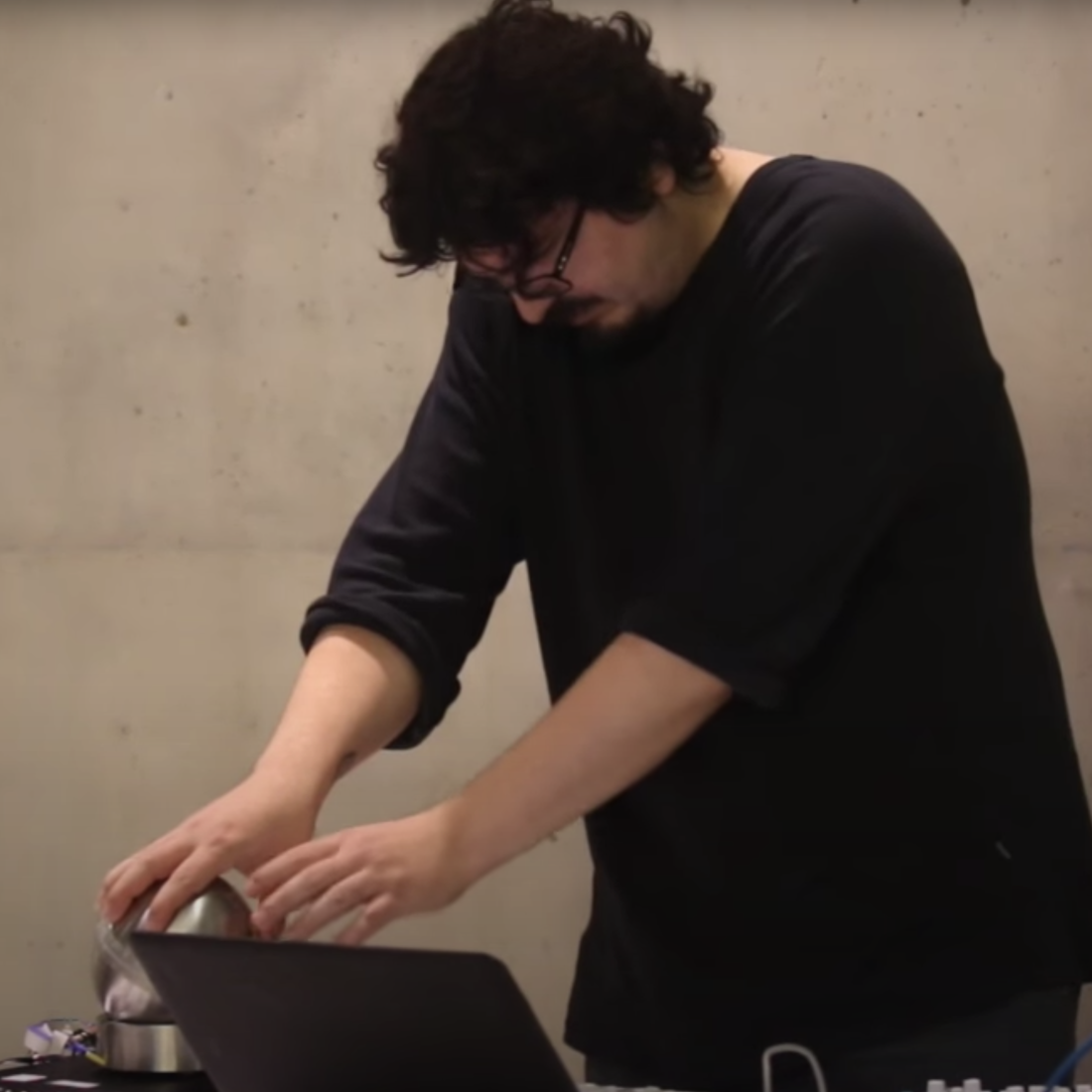
Studied Composition at the Catholic University of Chile and Sonology at the Royal Conservatoire The Hague (NL), where he obtained his Master's degree with a focus on composition and performance of electronic music. In 2014, Juan obtained his PhD degree from Leiden University with his thesis “Multiple Paths: Towards a Performance Practice in Computer Music”. As a guitarist, Parra has participated in several courses of Guitar Craft, a school founded by Robert Fripp, becoming part of various related guitar ensembles such as the Berlin Guitar Ensemble, the Buenos Aires Guitar Ensemble, and until 2003, The League of Crafty Guitarists.
His work in the field of live electronic music has made him the recipient of numerous grants such as NFPK, Prins Bernhard Cultuurfonds, and the International Music Council. Founder of The Electronic Hammer, a Computer and Percussion trio, and Wiregriot (voice & electronics), he collaborates regularly with Ensemble KLANG (NL) and Hermes (BE), among many others. Since 2009 Parra has been a fellow researcher at Orpheus Instituut (Ghent, BE), focused on performance practice in Computer Music.
Juan has been appointed as Regional Director for Europe of the International Computer Music Association for the period 2022-2026.
Jacob Eriksen
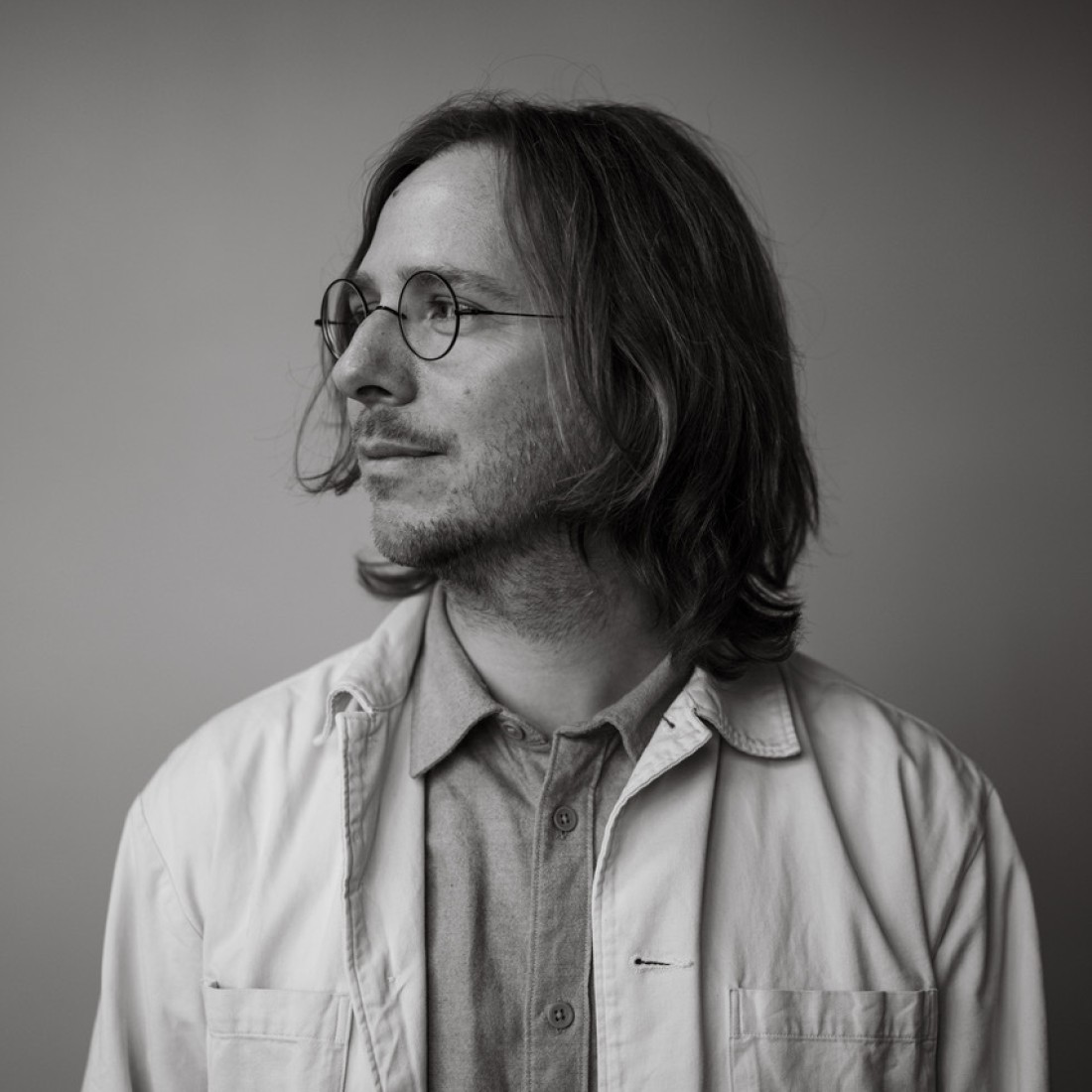
© Mateusz Szota
Jacob Eriksen is an artist, curator and lecturer in the field of sound art and sound studies. Eriksen is director of the artist residency Sound Art Lab, artistic director of Struer Tracks – Biennial for Sound and Listening, founder and head of studies at 89 Sound Art School, and teaches at Sound Studies and Sonic Arts, UdK Berlin. His academic work examines ecologies and more-than-human relations through artistic practice, discourse and research in sound, while his artistic practice engages with sound synthesis and conceptual works through performances, installations, workshops and listening exercises.
http://www.jacoberiksen.dk
https://www.instagram.com/jacoberik
https://www.facebook.com/jacoberiksen/
Anette Hoffmann

Anette Hoffmann’s artistic, curatorial, and academic work engages with historical sound archives and audio-visual collections as sources of colonial history. Her installations and exhibitions aim to plurify the presence and audibility of historical speakers, speaking positions, narrative genres, and languages in public spaces; her work has been shown internationally since 2009. She is the author of Knowing by Ear. Listening to Voice Recordings with African Prisoners of War in German Camps (1915-1918), 2024 (Duke University Press) and Listening to Colonial History: Echoes of Coercive Knowledge Production in Historical Sound Recordings from Southern Africa (Basler Afrika Bibliographien), 2023. She is senior researcher at the Institute for African Studies and Egyptology at the University of Cologne, Germany.
Aleksander Kolkowski

© Olalla Lojo
Aleksander Kolkowski is a composer, violinist and researcher who uses historical sound recording and reproduction apparatus and obsolete instruments and media to make contemporary mechanical-acoustic and electronic music. His work invites us to listen to the present through the audio technologies of the past, through acoustic and analogue recordings, sound installations and live historical re-enactments. His numerous international projects in this field have combined wax cylinder phonographs, wind-up gramophones and antique disc recording machines together with live musicians and even singing canaries. He has performed and exhibited internationally since 1985 and contributed to over 30 published recordings in multiple genres.
Awarded PhD, Brunel University (2011). Appointed Sound artist-in-residence, Science Museum, London (2012-14), culminating in the reconstruction of a giant loudspeaker horn from 1929, the largest in Britain, exhibited in The Exponential Horn: In Search of Perfect Sound (2014). Research Associateships at the Royal College of Music, London (2013) and Science Museum (2014-15). Composer-in-residence at the British Library Sound Archive (2016-18) where his sound installation Boy Wireless (2017-18) featured radio technology and archival radio broadcasts from the 1920s and 30s. Visiting Scholar at the Max Planck Institute for the History of Science, Berlin (2019); Postdoctoral Research Associate at the University of Luxembourg (2019-22). Co-author of Doing Experimental Media Archaeology: Practice (De Gruyter, 2023). He is resident in Málaga.
http://www.phonographies.org/
https://dema.uni.lu/wilcox-gay-recordio-1c10-sound-recording/
Cécile Malaspina
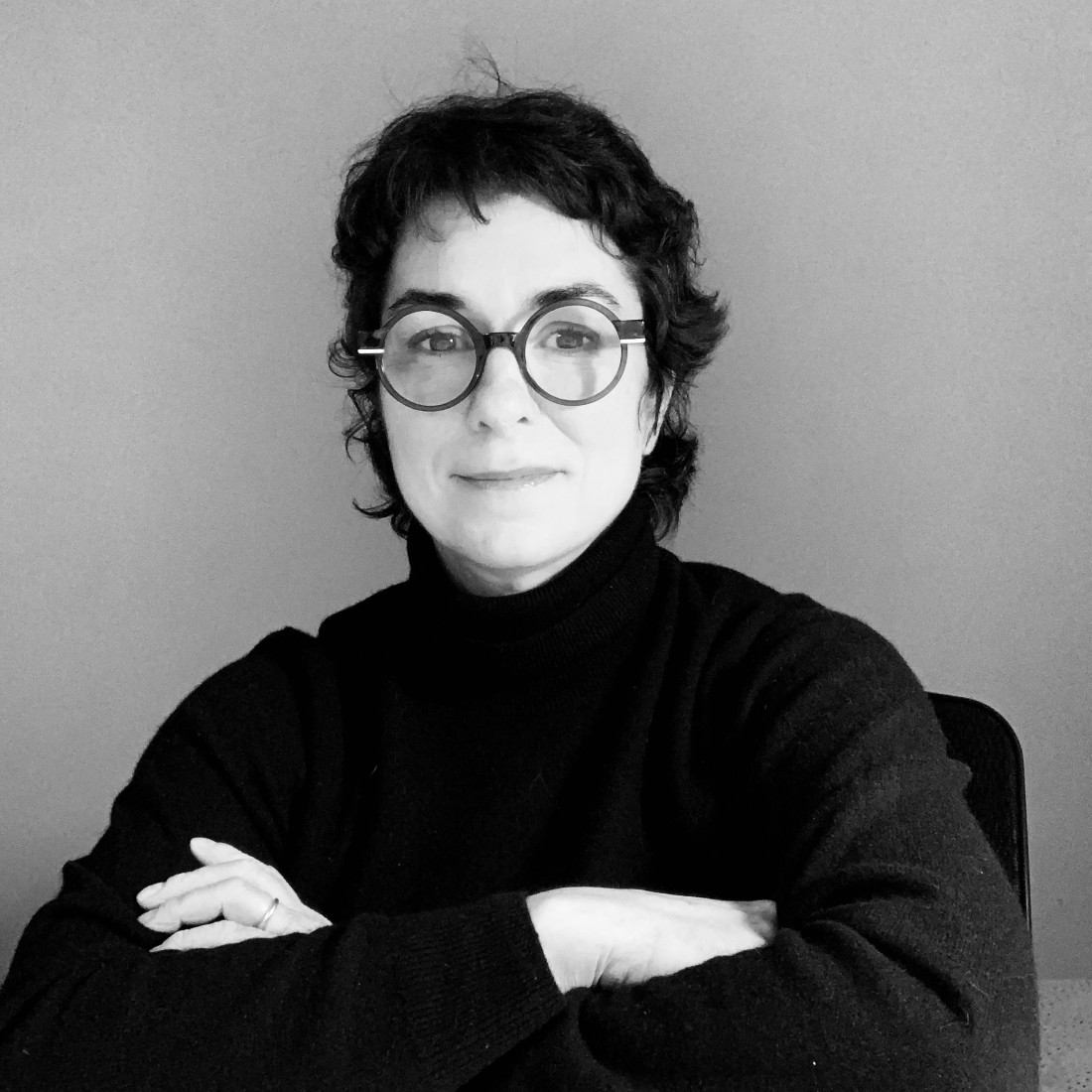
Cécile Malaspina's most recent publication is a volume she edited, From the Mental State of Noise to the New Frontiers of Techno-Human Cognition: Creative Disruptions Across AI, Gaming, Modelling, French Theory, and Politics (Routledge, 2026). After publishing An Epistemology of Noise in 2018 (Bloomsbury Academic) and the translation of Gilbert Simondon’s On the Mode of Existence of Technical Objects (Minnesota University Press, 2017), Cécile Malaspina became directrice de programme at the College International de Philosophie, Paris (Ciph). Her programme situated the technical concept of noise in aesthetic, social and political contexts. This gave rise to a partnership with the Dept. of Digital Humanities and the Dept. of French at King’s College London, leading to a Visiting Research Fellowship at KCL (2019-2025). She was also, until recently, programmer for Art & Curatorial Practice at the New Centre for Research and Practice (2021-2025), a non-profit Licensed US Proprietary School, authorized to provide graduate-level Seminars and certificates of competency in the arts, transdisciplinary studies, critical philosophy & social and political thought.
Cécile Malaspina is a founding member of the Noise Research Union (N.R.U.), together with Inigo Wilkins, Mattin, Sonia de Jager, Martina Raponi and Miguel Prado Casanova. She also a member of the informal Indeterminacy Group, comprising Sha Xin Wei, Alicia Juarrero, Muindi Fanuel Muindi and Sonia de Jager. She is a member of the editorial boards of Angelaki: Journal of the Theoretical Humanities; Copy Press; and is a guest editor at Nature: Humanities and Social Sciences Communications.
Úna Monaghan

© Elaine Hill
Úna Monaghan is a harper, composer, researcher and sound artist working internationally. She collaborates, improvises and performs with poets, visual artists, computers, writers, musicians, and others. Úna also works as a sound engineer specialising in Irish traditional music, and experimental, live electronic and multichannel music. She has released two albums of her compositions, most recently Aonaracht, for solo traditional musicians and electronics. Her recent commissions include pieces for Red Note, Crash Ensemble, Ulster Orchestra and Hard Rain Soloist Ensemble. Úna performs solo and as a member of contemporary music ensemble Stone Drawn Circles. Úna received the inaugural Liam O’Flynn Award from the Arts Council of Ireland and the National Concert Hall Dublin, and held the Rosamund Harding Research Fellowship in Music at Newnham College, University of Cambridge from 2016-2019. She is a lecturer at the Centre for Interdisciplinary Research in Sound and Music (SARC) at Queen’s University Belfast, where her research examines the intersections between Irish traditional music, experimental music practices, improvisation and interactive technologies.
https://www.unamonaghan.com/
https://www.instagram.com/una_pix
https://bsky.app/profile/una-music.bsky.social
Halldór Úlfarsson
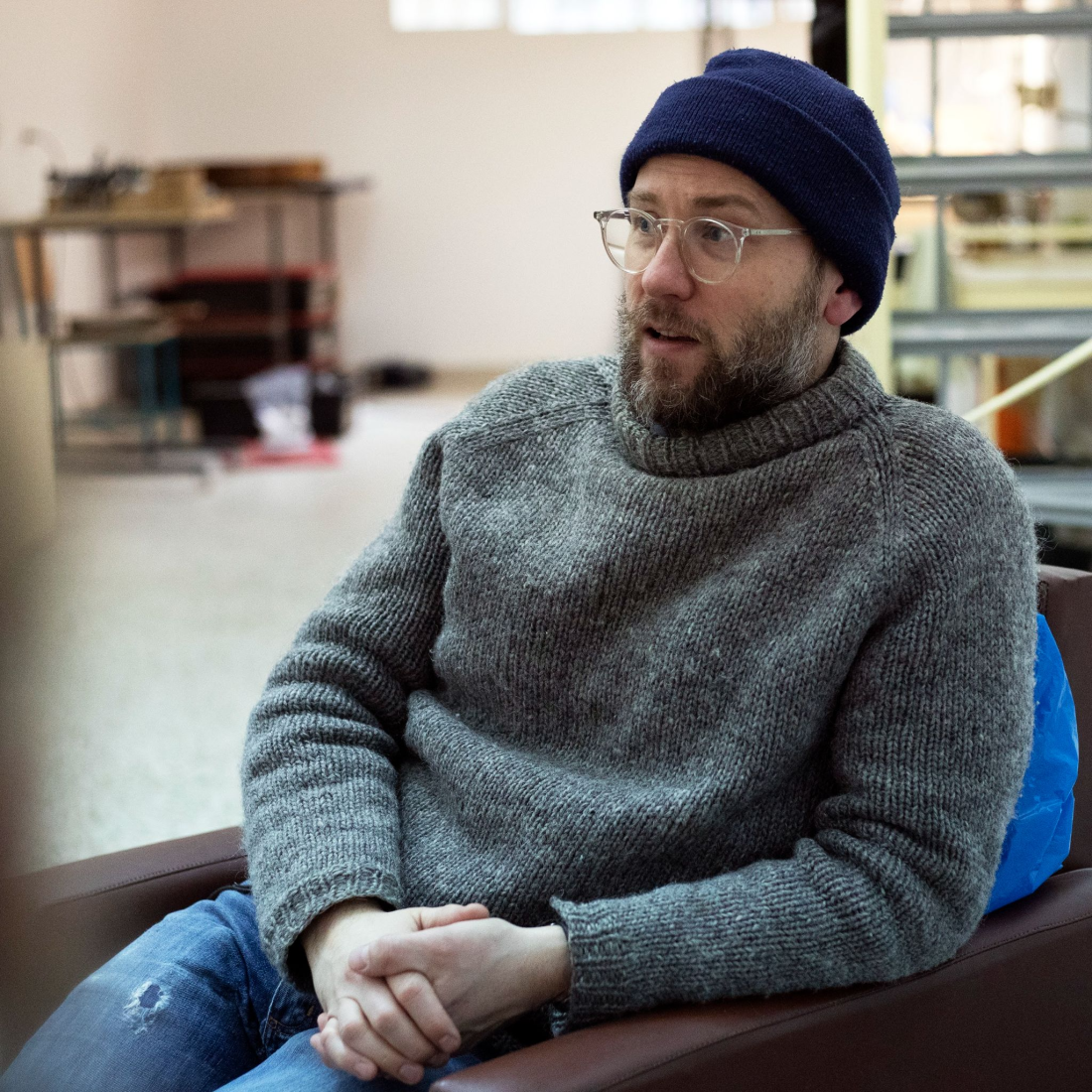
© Myrto Grigorou
Halldór Úlfarsson is an experimental luthier and inventor of the halldorophone, an electro-acoustic instrument for working with feedbacking strings. A visual artist by training, Halldór’s interest is focused on the conditions allowing musicians to develop deep relationships with their instruments and the institutions facilitating these relationships. Halldór holds a BFA and MFA in Fine Art in time based media, an MFA in Product Design and is a PhD dropout. He is currently the resident instrument maker and fabricator at Intelligent Instruments Lab at the University of Iceland.
https://www.halldorophone.info/
https://www.instagram.com/halldorophone/
Melissa Van Drie

Melissa Van Drie is a researcher and artist specialising in histories of sound and listening. Holding degrees in Theatre Studies and Music, her work explores sensory practices, material culture, and histories of staging in knowledge production. She has held positions at Cambridge, the Sorbonne, Beaux Arts de Paris, the University of Copenhagen. Currently, she is Research Fellow at the Orpheus Instituut for Advanced Studies and Research in Music in Ghent. Her recent Sounds Delicious Project explores the multiple ways in which sound and vibratory sensing matter to making food and taste. One aim is to create new forms that explore the agency of nonhumans in foodways, contributing to Multispecies Anthropology and the Environmental Humanities.
Cathy van Eck
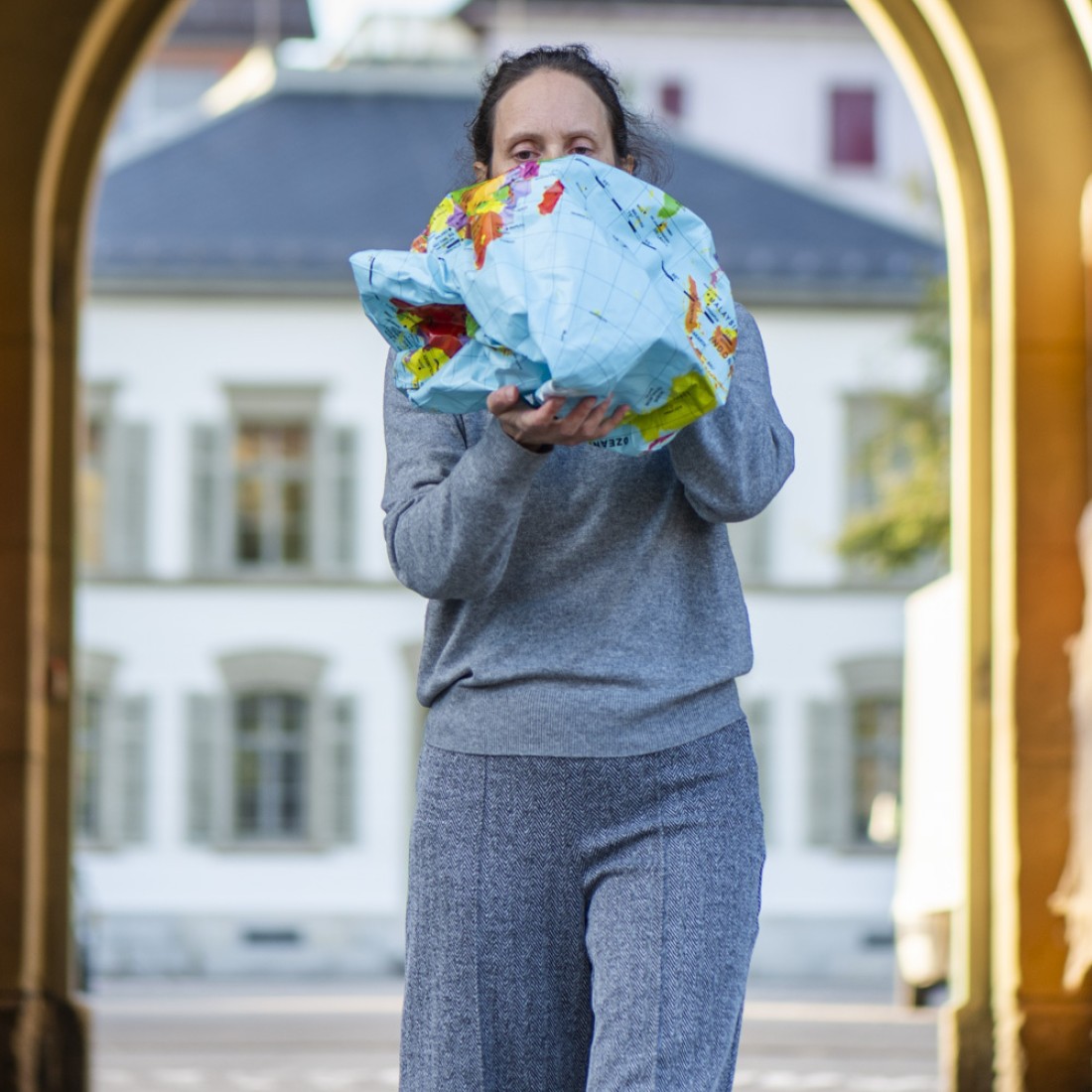
© Axel Crettenand
Cathy van Eck is a composer, sound artist, and researcher in the arts. She is interested in setting her movements, actions, and gestures into relationships with a rich palette of different sounds, exploring peculiar sonic sceneries. The result could be called “performative sound art”, since it combines elements from performance art, electronic music, and visual arts. Cathy is a professor at the Academy of the Arts in Bern, Switzerland. Her book Between Air and Electricity – Microphones and Loudspeakers as Musical Instruments was published in 2017. She is a member of iii (instrument inventors initiative), an artist run organization based in The Hague, supporting new interdisciplinary practices linking performance, technology and the human senses.
Mark Peter Wright
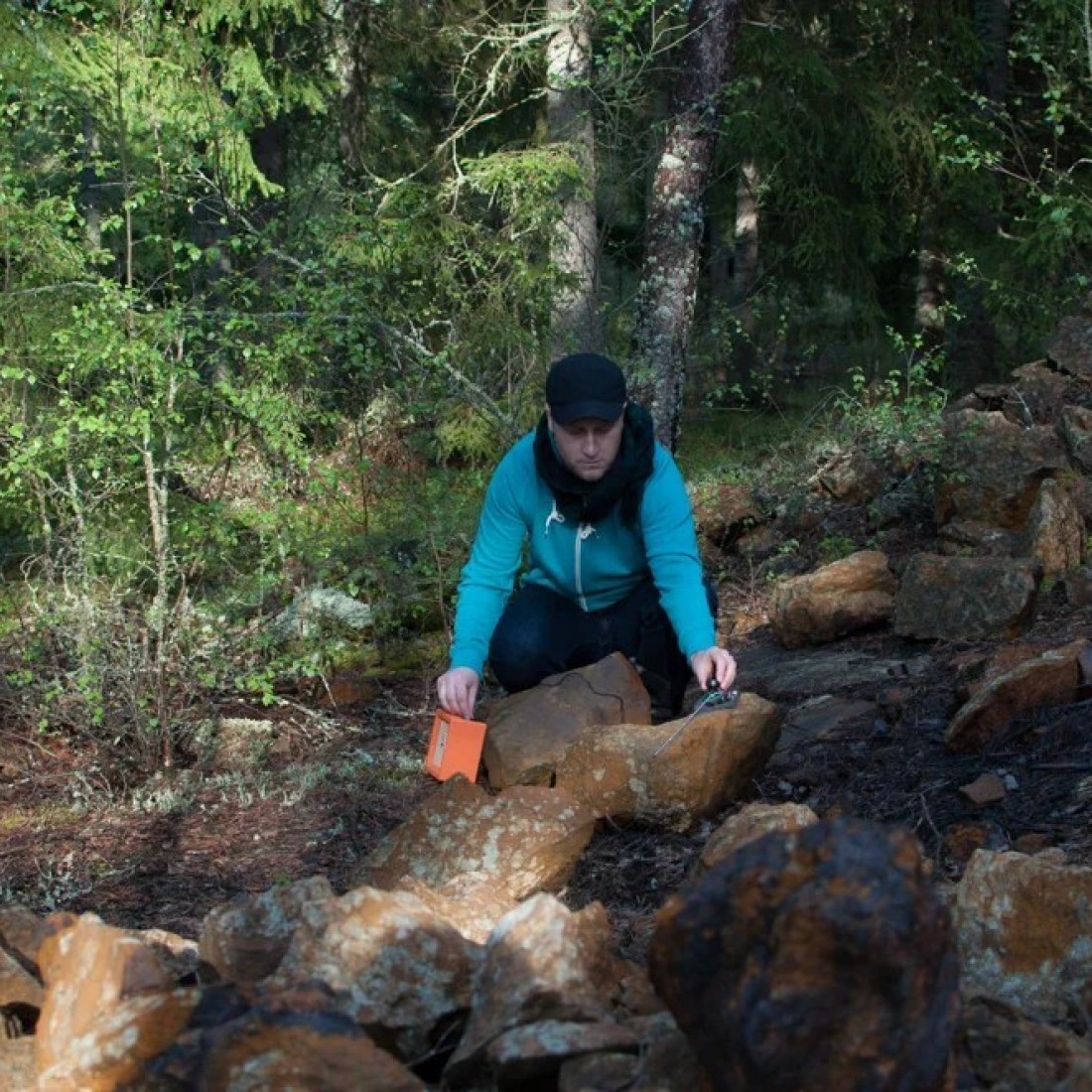
© Salla Lahtinen
Mark Peter Wright is an artist, researcher and writer. His practice mixes critical theory, sound and experimental pedagogy across installation, publication and performance. He is interested in the relationship between fieldwork, documentary forms and the gallery or studio, examining the ways technology, self and space perform agency, power and poetics. Wright is the director of CRiSAP (Creative Research in Sound Arts Practice), an interdisciplinary research centre dedicated to sound arts practice and theory based at the London College of Communication, UAL. His recent book Listening After Nature: Field Recording, Ecology, Critical Practice is published by Bloomsbury (2022/23).
https://markpeterwright.net/
https://bsky.app/profile/markpeterwright.bsky.social
Registration
Sound Arguments will meet monthly from February – May 2026. Meetings will be held both in Ghent and Leiden, according to the calendar below.
Ghent sessions (February, April and May) will run on Mondays 14:00-20:00, Tuesdays 10:00-18:00, and Wednesdays 10:00-16:00.
Leiden sessions (March) will run on Mondays 14:00-18:00 and Tuesdays 10:00-18:00.
- February 09-10-11 (Orpheus Instituut, Ghent)
- March 02-03 (Academy of Creative and Performing Arts, Leiden)
- March 30-31 (Academy of Creative and Performing Arts, Leiden)
- April 27-28-29 (Orpheus Instituut, Ghent)
- May 18-19-20 (Orpheus Instituut, Ghent)
The nature of this series is such that numbers must be limited. Prospective participants are invited to apply by responding to this call at:
The form requests a brief description of the role of sound in your practice, which will allow us to balance the series appropriately. Application is open until 04 January 2025 (no extension). Applicants will be notified by 12 January.
Sound Arguments is made available at no cost to participants, regardless of institutional affiliation. At Sound Arguments we aim to create a safe and inclusive environment for all those involved; we particularly encourage applications from historically under-represented groups in the field. As organisors, we commit to taking that into account during evaluation of the applications received.
General inquiries can be sent to soundarguments@orpheusinstituut.be
We look forward to meeting you!
Magno Caliman (Orpheus Instituut, Ghent)
Marcel Cobussen (Academy of Creative and Performance Arts, Leiden University)
Jonathan Impett (Orpheus Instituut, Ghent)



